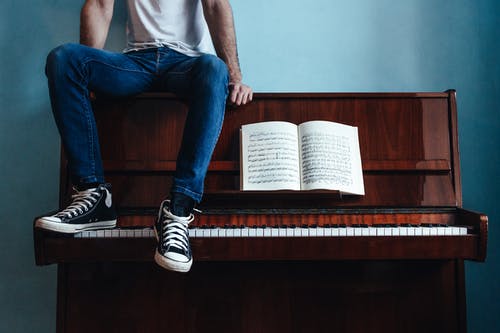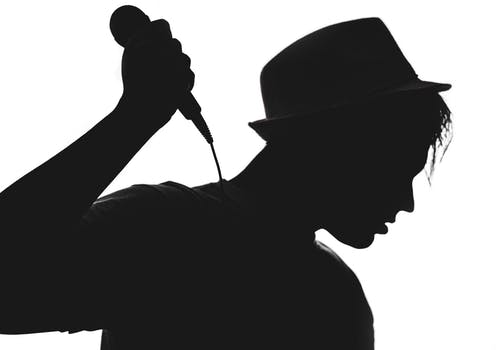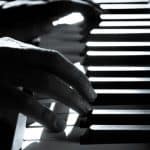One of the first confusions people have when they receive a new piano is to place it.
The most common placement of pianos is on an inside wall, and no one really knows why.
Do you have to place a piano on an inside wall?
Why, and are there any other options too?
Everyone wants to be creative with their interior design and do something unique.
However, it’s essential to know the logic behind a common trend and understand why it’s so popular.
Sometimes, rebelling against the norm can be more harmful than fun.
So let’s discuss whether it’s essential to place a piano on an inside wall and, if yes, why.
Related: Check out this article I wrote on whether pianos are part of an orchestra
Do You Have To Place A Piano On An Inside Wall?

The short answer is, yes, you do.
For ages, it is a norm to place your piano on an inner wall.
However, only a few people know that there are specific logical reasons behind this trend.
- In an upright piano, the majority of sound comes from the backside of the instrument. The soundboard is open and exposed from its back. So, being against an inner wall ensures that the sound reflects.
- Inner walls usually keep your upright pianos away from air vents, windows, doors, and direct sunlight. This way, your instrument, a machine, stays away from everything that could damage it or reduce its lifespan, i.e., humidity, temperature fluctuations, and direct exposure to the sun.
Can You Place A Piano On An Outside Wall?
It is not common to find pianos on an outside wall.
An outer wall is generally the warmest area of your house because it is the closest, most exposed to the sun.
It means that if you place your instrument, made of wood and metal, next to this wall, you’re putting it in a danger zone.
Not only will your piano be exposed to the sun, but it will also face significant temperature changes throughout the day.
As a result, here are a few side effects that you might notice if you place your piano on an outside wall:
- Lost tuning
- Mechanical failures
- Cracking and ruined color and finish
- Swollen wood
- Expensive tuning and repairs
The primary reason why inner walls are preferred is keeping the piano away from the outside environment and changing temperatures.
However, if you can ensure the same safety on an exterior wall, you are more than welcome to place it there.
Besides, an outer wall is better than no wall.
How Far Can A Piano Be From A Wall?
Placing your piano on an inside or outside wall doesn’t mean that it should be completely attached to it.
There are several reasons why there should be some distance between your piano and the wall.
One: If there is some leakage in the wall and rainwater leaks inside, it won’t trickle down to directly contact your instrument.
Two: any sudden temperature changes on the outside will not directly or quickly affect your piano.
On average, you want to keep a distance of at least 3 inches between the wall and your piano.
Tip: When you are about to place your piano next to a wall, feel the wall with your hands, and if it feels significantly cold, don’t put your instrument there. If it feels warm or near room temperature, go ahead.
Can You Place A Piano Near A Window?
Absolutely not! Windows are a direct opening for sunshine, wind, humidity.
You want none of these things coming anywhere near your piano.
When it rains, snows, or it’s generally humid outside, the moisture enters the room and contacts your piano directly.
Since the exterior is wooden, humidity stimulates wood to swell up, changing the shape of the material and the pitch your piano produces.
Similarly, direct sun exposure and changing temperatures can, directly and indirectly, affect the instrument’s wood and metal.
As a result, you will notice all the side effects we discussed above.
Even if the window is shut, it is still glass.
It allows sunshine and fluctuating temperatures to impact the room.
So, there is no way you can make it work by placing your piano next to a window.
Can You Place A Piano In The Basement?
The good thing about basements is that there is not much of a temperature problem, and it doesn’t have direct sunlight incoming either.
Thus, the temperatures remain somewhat stable and safe for your piano.
However, basements can be too humid sometimes.
If not high, the moisture levels are very unstable and significantly impact the instrument from the outside and the inside.
As mentioned earlier, the wood swells up, the strings change their tension, and the tones start to change.
Furthermore, continuous exposure to moisture can also ruin your instrument’s finish and slowly destroy the wood.
Moreover, if the humidity gets to the metal elements, they are prone to rust as well.
Overall, the lifespan of your piano will decrease dramatically.
Also check out this article I wrote on Can playing the piano make you smarter?
Can You Place A Piano On A Carpet Or A Rug?
People are usually tempted to put their pianos on centered rugs and carpets.
Why wouldn’t they?
It’s a beautiful, aesthetic way to place your majestic instrument, right?
However, as pretty as it looks, it has its drawbacks, and it’s not the best way to set and play your piano.
Carpets and rugs absorb a lot of sounds that come out of your instrument and dampen it.
Hard flooring is the ideal, most recommended way to place your piano to hear its most natural sound output.
However, if you’re living in an apartment or want to dampen the sound on purpose, placing the piano on a carpet or rug would make sense.
Conclusion
So, do you have to place a piano on an inside wall?
Yes, and no.
The primary reason to do this is to protect the piano and get the maximum sound output.
If you think you can accomplish both of these goals in any other place in your house, you’re more than welcome to rebel against the trend.
However, there are a few do’s and don’ts of placing a piano, as mentioned above, so make sure you keep them in mind while experimenting with placements.



